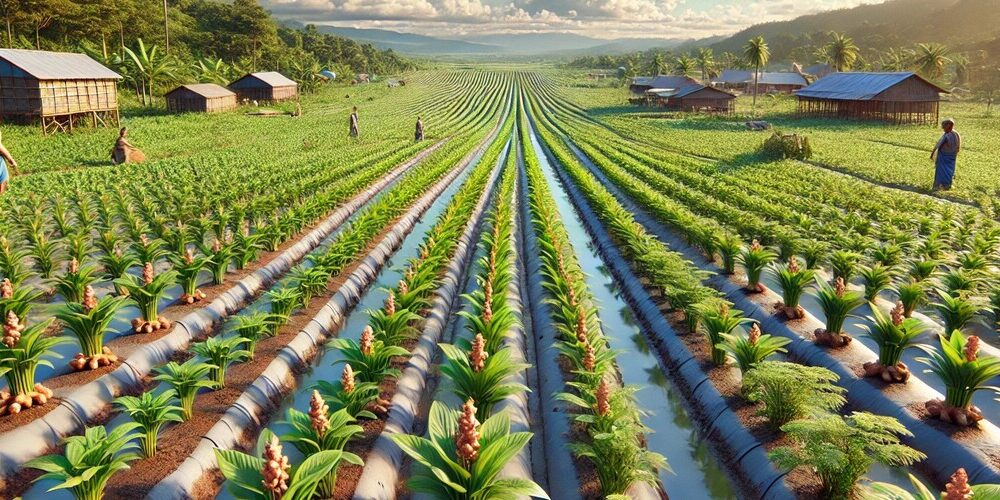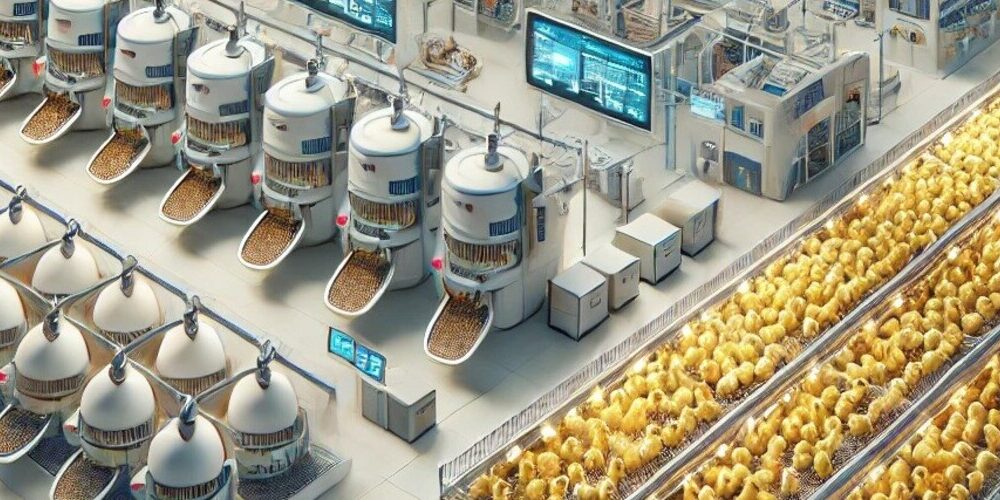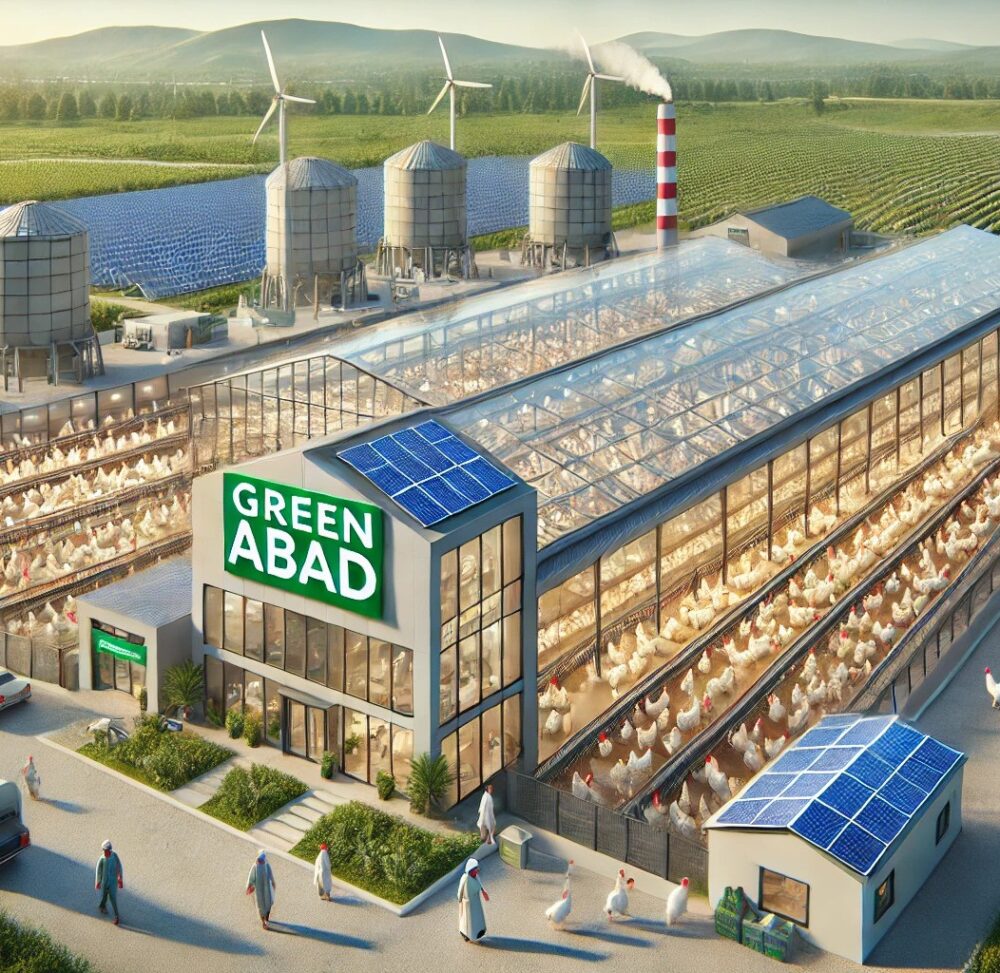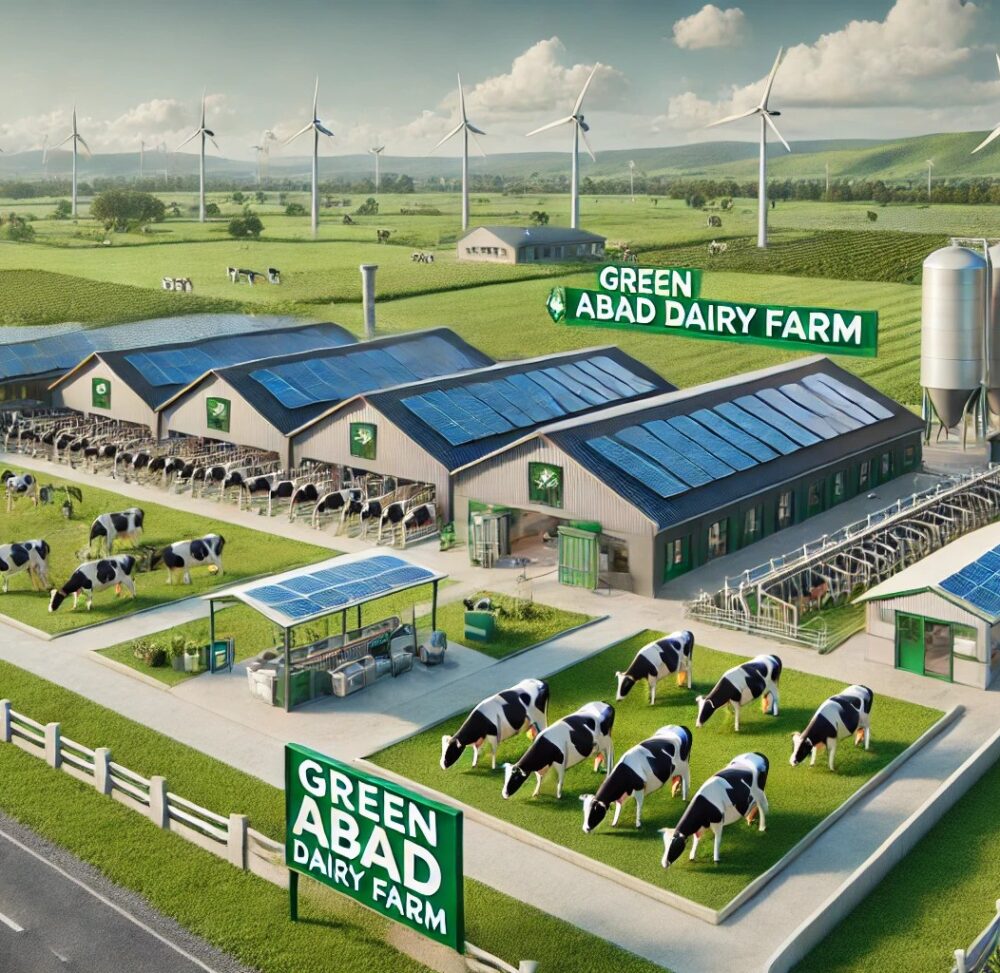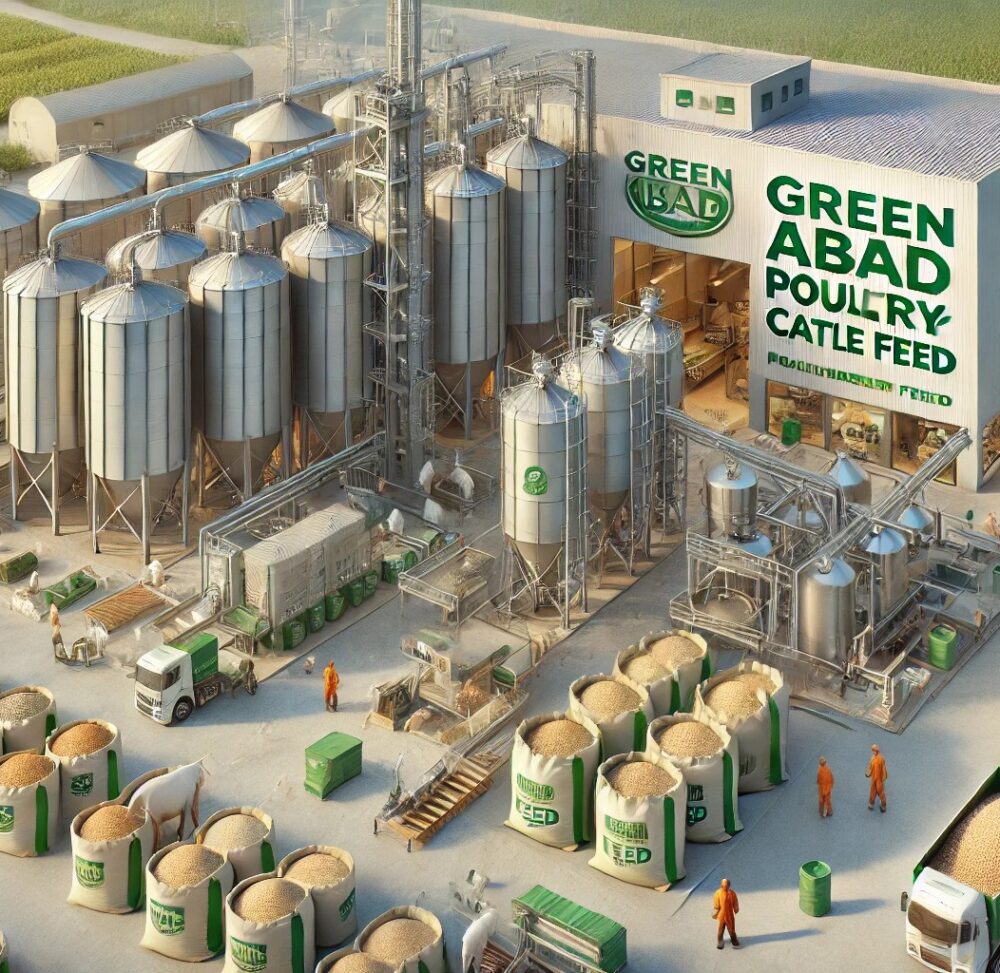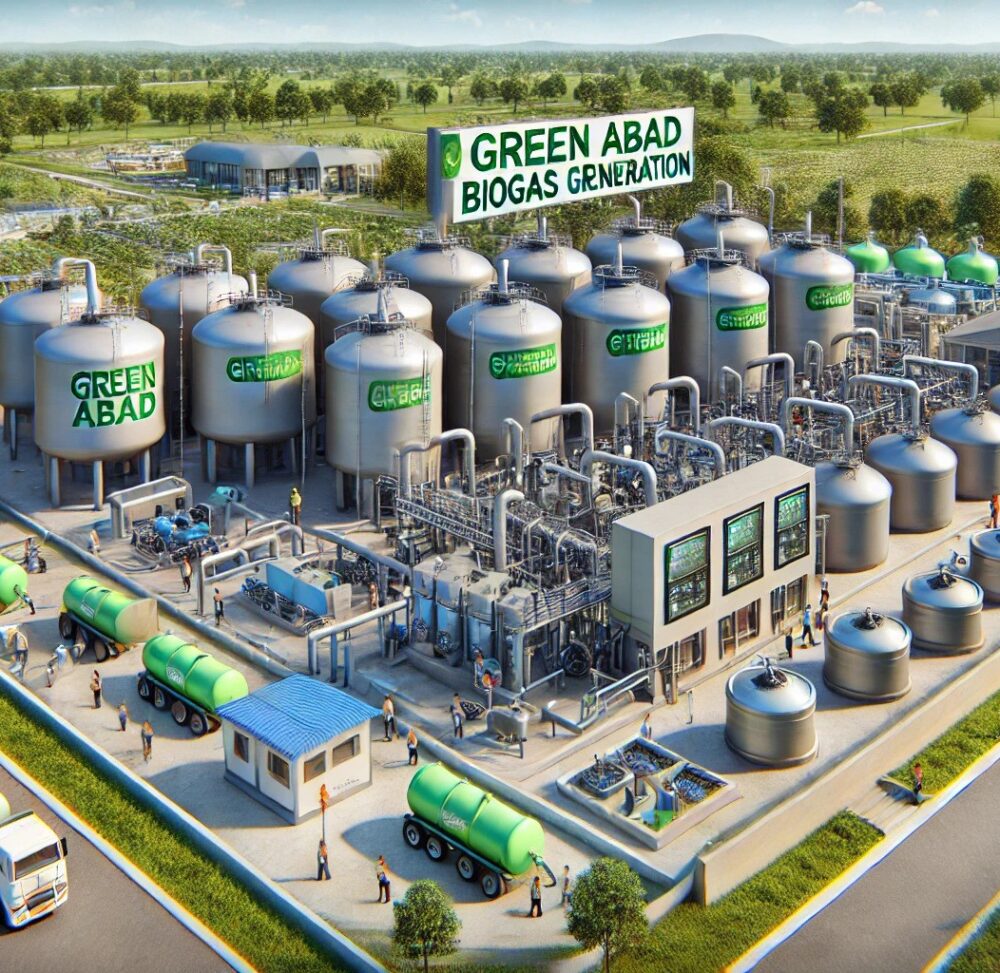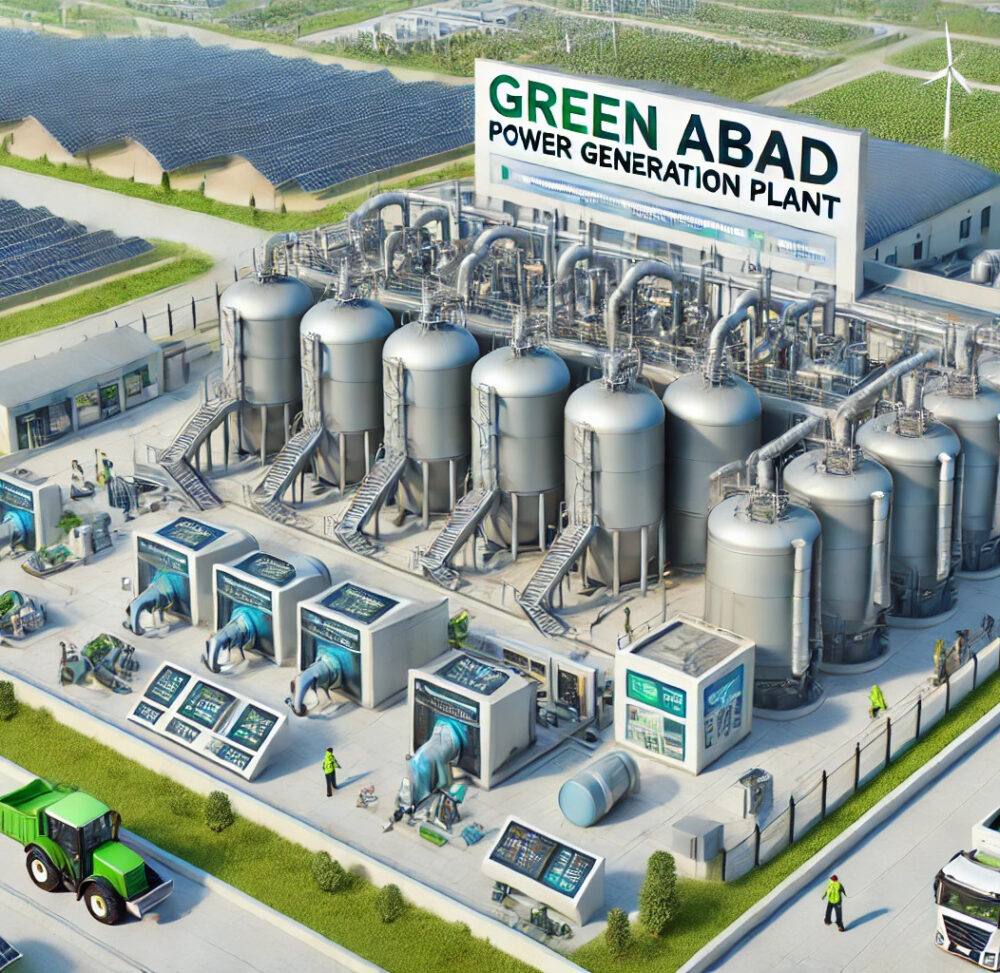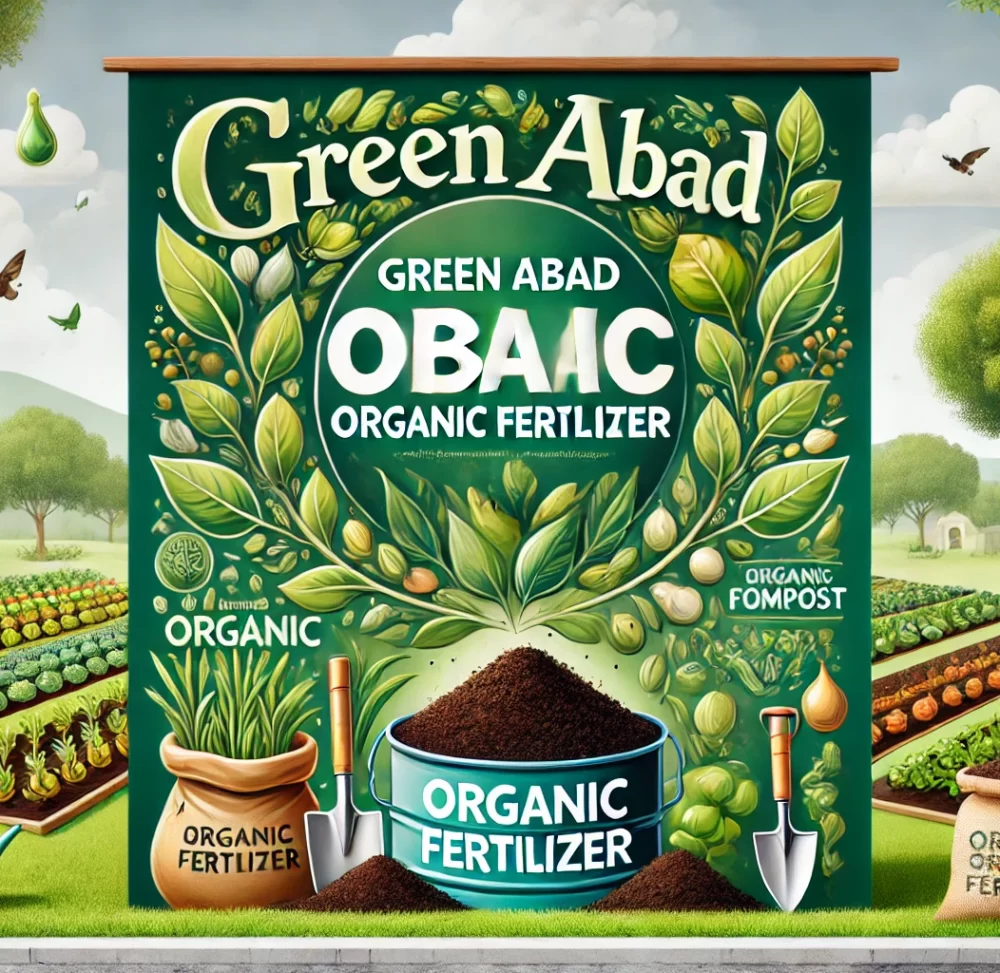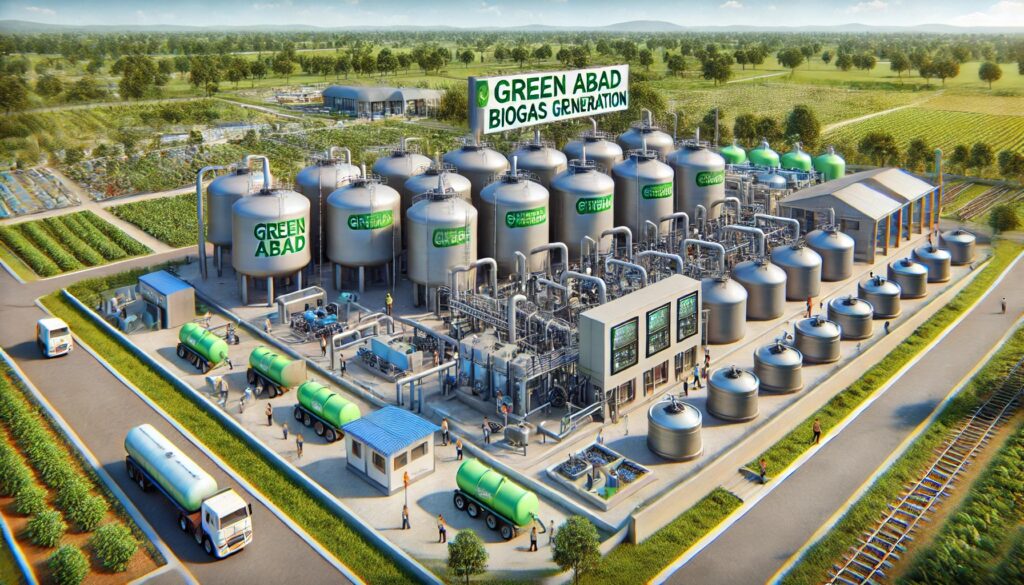
The Project Green Abad shall go into production for biogas and sound energy by conversion of waste materials. Animal excreta and dung, food waste, crop waste, and vegetable waste from our integrated ginger farm, chicken farm, and dairy farm will make raw materials for biogas production. All wastes will be converted into a biogas closed-loop mechanism, which will work as the source of reusable or renewable energy in running our operations. We will aim to minimize the general ecosphere footprint and derive these agricultural activities from these resources in a more sustainable manner. Most farm operations will be powered by the biogas obtained, reducing reliance on non-renewable energy sources to reduce operational costs further.
The biogas project is one of the shining examples where green plantations are dedicated to sustainability and innovation. We exemplify how one can make waste management an opportunity for the production of renewable energy and vice versa: integration between agriculture and energy production. The project will set a benchmark for sustainable practices in the agricultural sector and also guide options within the environmentally friendly and economic field of possibilities.
Technological Advancements
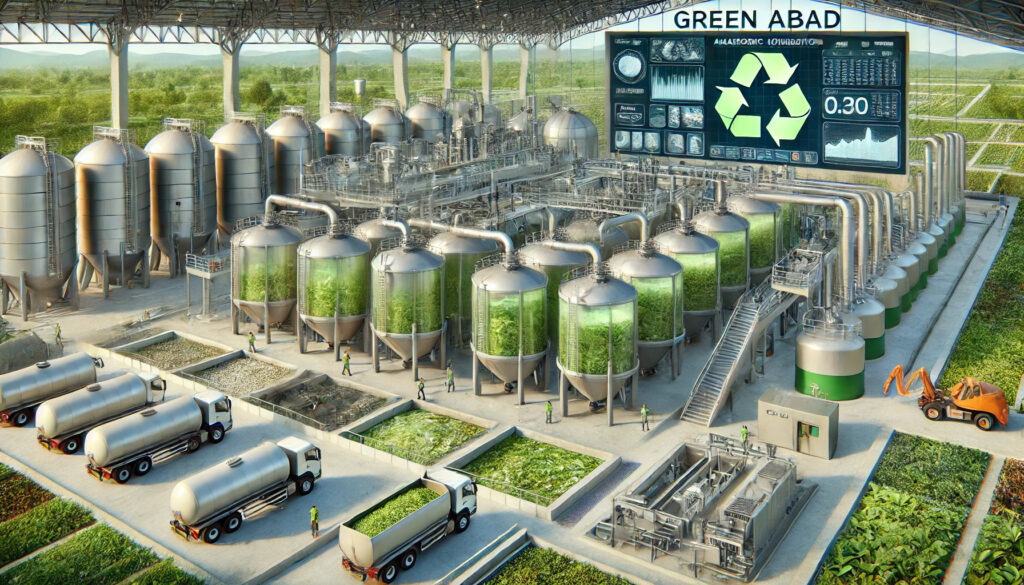
Anaerobic Digestion: The advanced anaerobic digestion technologies shall be adopted in Green Abad, thereby, the effective generation of biogas. It is a process that actually degrades organic waste in the absence of oxygen and consequently results in the production of biogas. It can manage different animal excreta, crop waste, and food waste yet still offers a sustainable and effective solution for solid waste management.
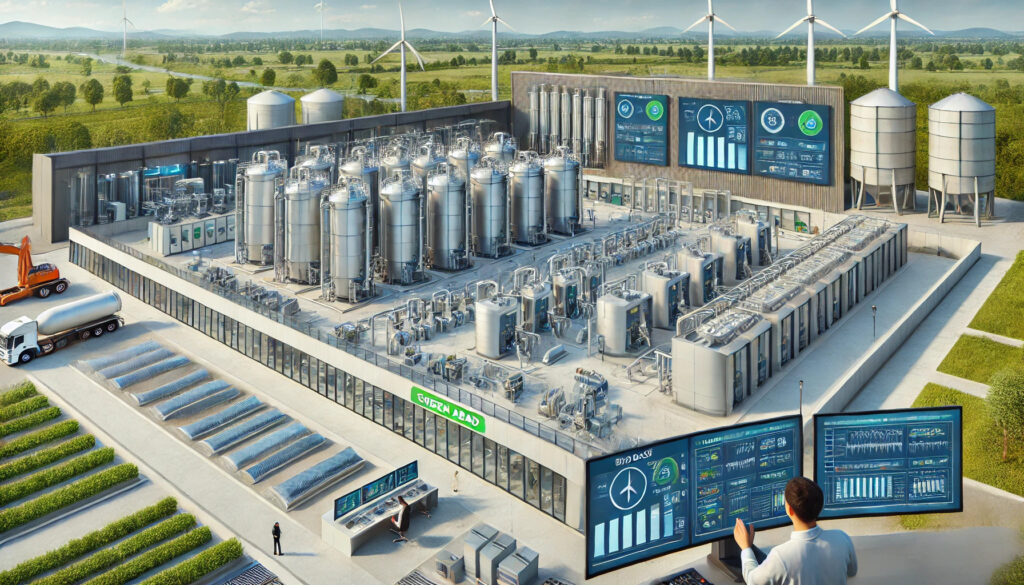
Energy Conversion: Advanced technology for energy conversion into electricity and heat will also harness the maximum potential of the produced biogas in the Green Abad project design. This would be done through the co-generation of heat to be used along with electricity. This ensures the most effective application of energy, giving considerable amounts of reduction in non-renewable energy requirements and vice-versa operation costs.
Facilities
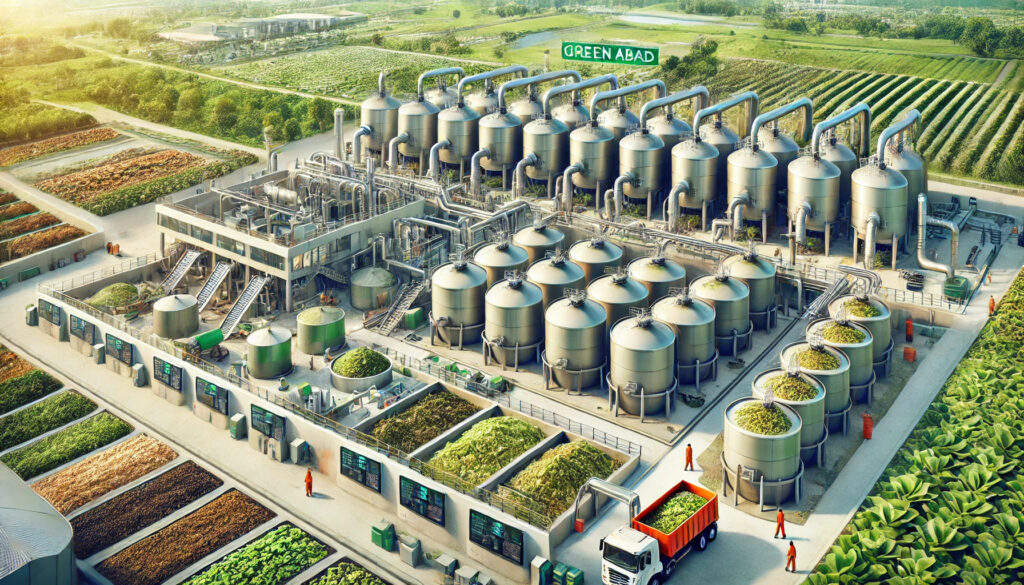
Biogas Plants: Green Abad shall invest in biogas plants on a large scale, designed to handle wastes from our operations. These shall be capable of taking in different forms of organic waste, for example, agricultural wastes and manures. By adequately breaking down these materials in the anaerobic digestion process, the biogas plants will thus be able to produce an adequate amount of renewable energy, help ease the problems that the production of waste causes, and contribute to making the goals sustainable.
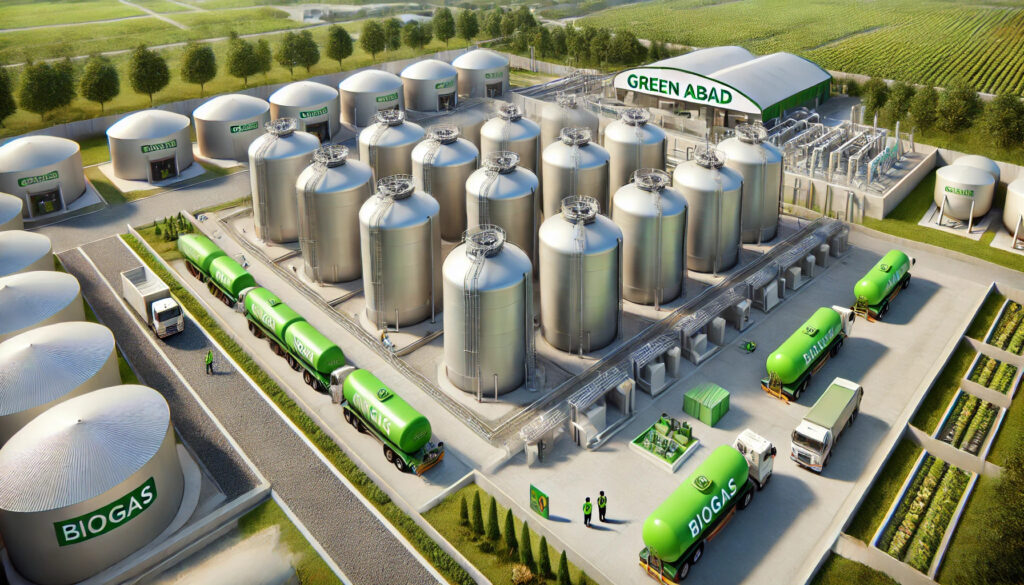
Storage Tanks: Green Abad will work on the construction of special storage tanks that will ensure consistency in the supply of biogas. The facilities are ensured for the safety of humans and the environment, as well as preserving gas from leaching or other forms of emission until required. These flow energy tanks help in supporting different farm operations for improved efficiency.
Environmental Impact
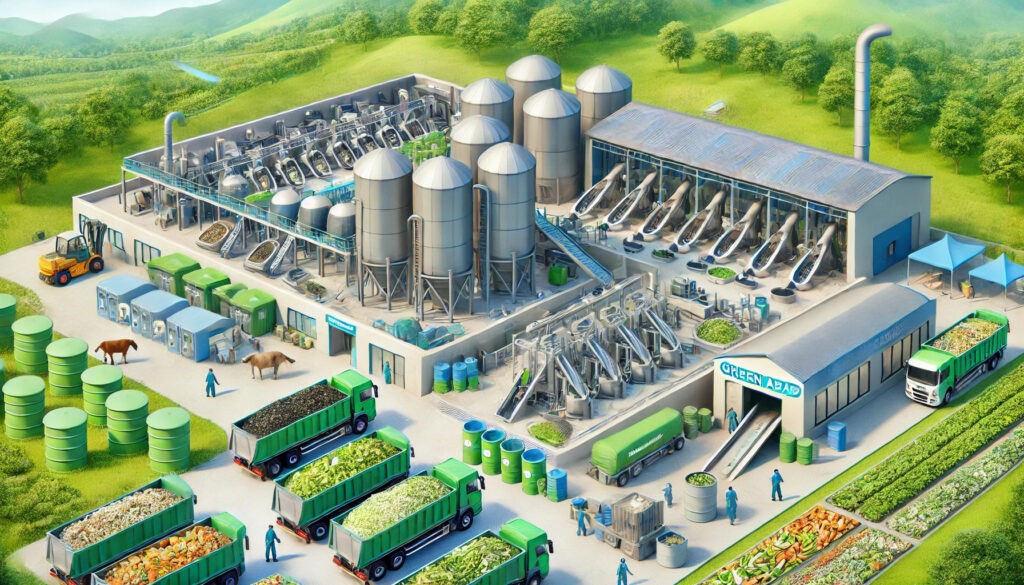
Waste Reduction: The biogas project shall immensely reduce waste through it. In processing Animal excreta and dung, food waste, crop waste, and vegetable waste, we are going to manage waste in a better way, improving the rate at which we dispose of solid wastes on our disposal sites. This will enable good waste management besides providing a cleaner environment that is more sustainable.
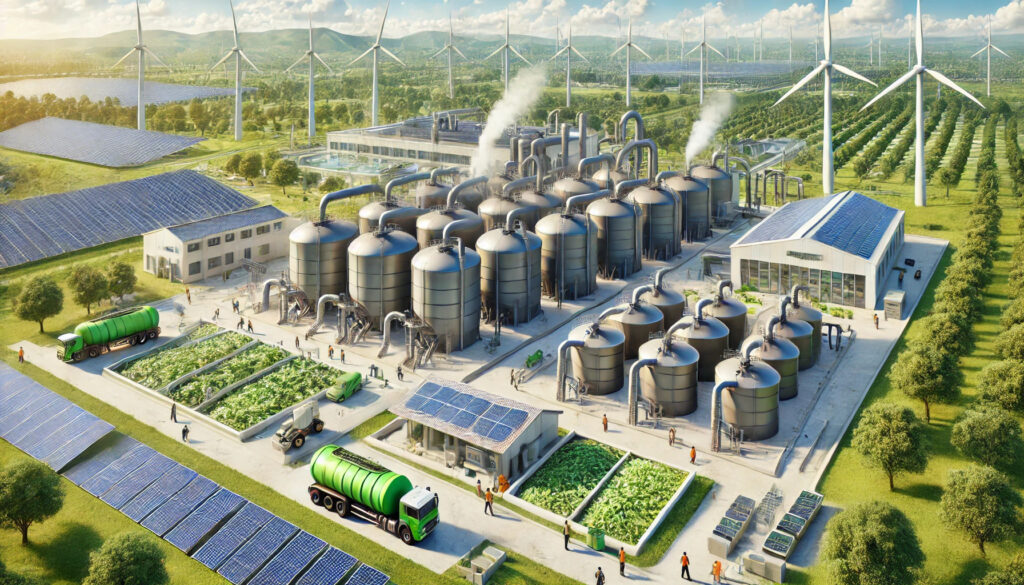
Renewable Energy: Biogas production would promote using renewable energy sources, thus reducing dependence on fossil fuel usage. The knowledge of producing biogas from organic waste assures that we will have fewer emissions of carbon into the environment this is all towards a greener world. This fits in very well with apart from other conservation efforts to be mounted a corporate social responsibility towards sustainability and climate change mitigation.
Economic Benefits
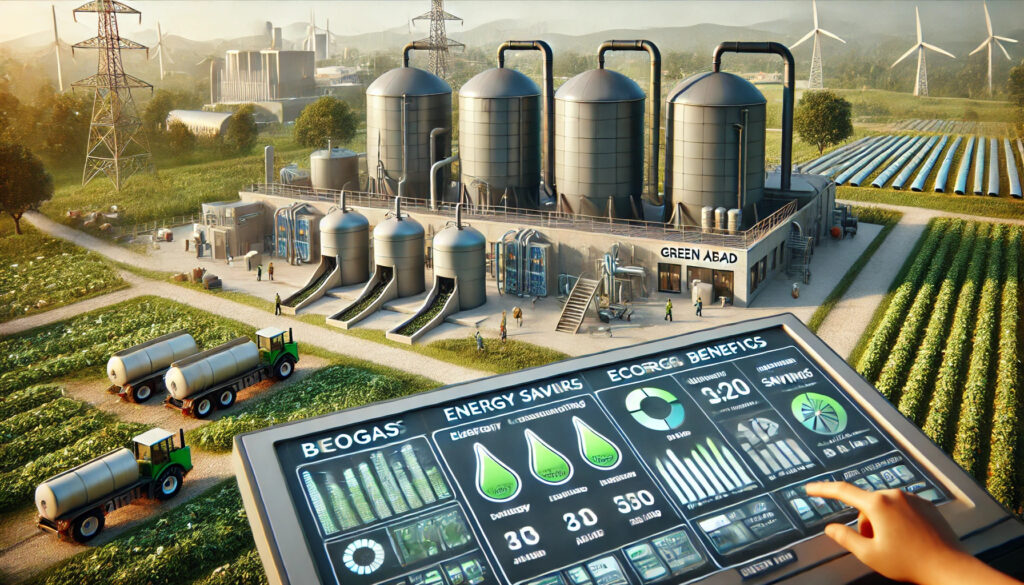
Energy Savings: Green Abad will save a lot of its operation costs by producing its own energy. A good amount of biogas produced using waste fuels numerous farm activities that would have had to acquire other high costs for electricity and heating. Energy independence drives economic profits to our operations and, therefore, makes our farming projects more economically sustainable.
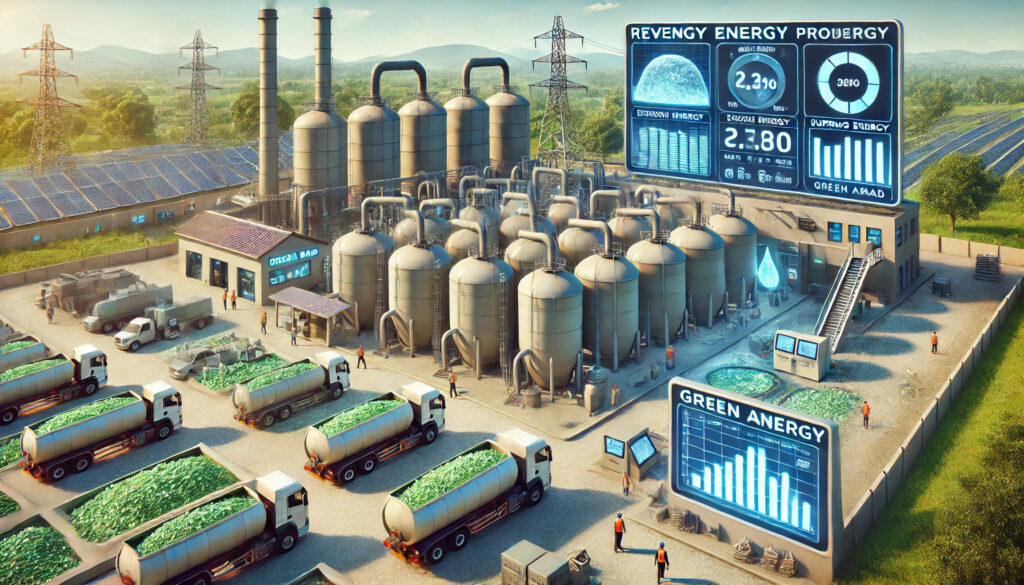
Revenue Generation: Other than meeting our own energy needs, Green Abad will be able to sell an excess amount of energy formed from biogas production. This will add some new revenue streams for the company apart from the fact that it will change garbage into a profitable economic resource. By selling the surplus power generated from the waste, we are going to buy a few extra watts for financial improvement to grow the economy with an improved source of power since power is the driving force.
Social Contributions
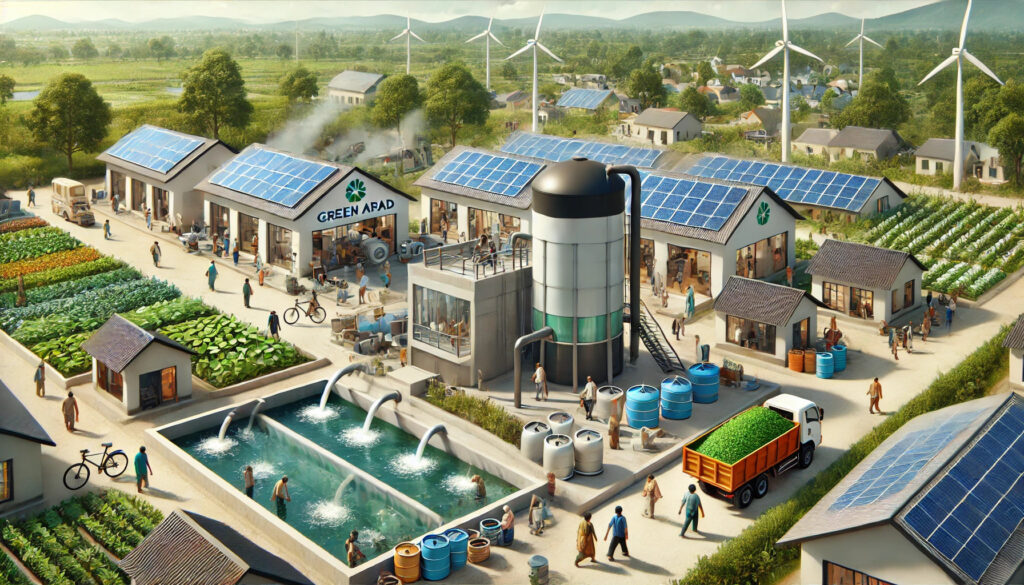
Energy Access: The Green Abad project will provide clean energy to reach local communities and significantly improve their quality of life. It will increase access to reliable and affordable energy for households and businesses within the region to meet their energy needs sustainably. This will support local development and contribute to energy security.
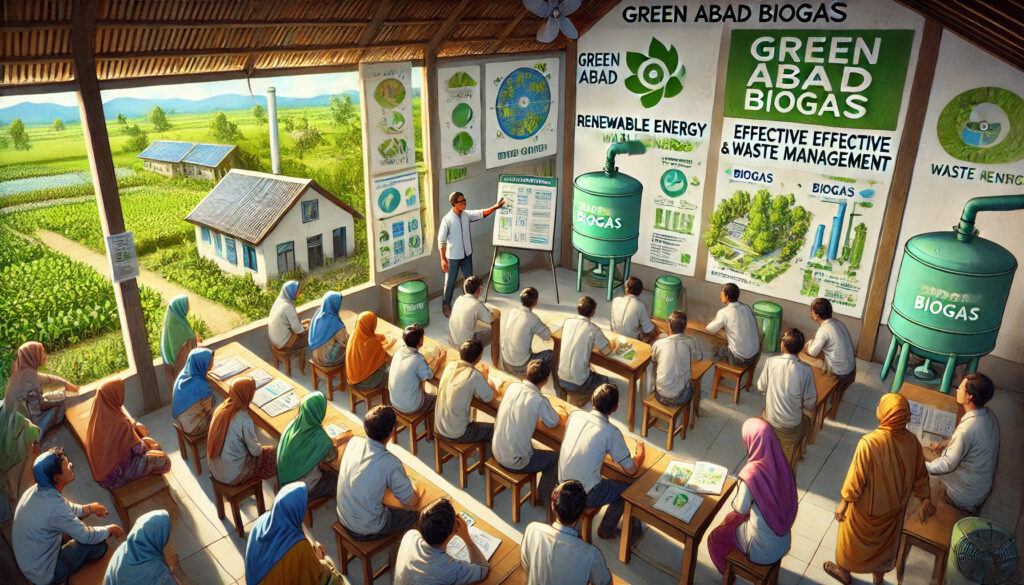
Educational Programs: Green Abad will offer programs not only about renewable energy but also about waste management. These education programs on sustainable practices, increasing awareness of their benefits to the community and bestowing skills and knowledge, will help inculcate a sustainability culture. With this information dissemination, a more significant societal base will arise that will adapt more and improve environmentally viable practices, resulting in a greener future for all.

